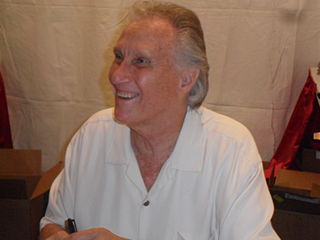A Quote by Richard K. Morgan
It was the single forgiving phrase in the syntax of weaponry I had strapped about me. The rest were unequivocal sentences of death.
Related Quotes
When I'm actually writing by hand, I get more of a sense of the rhythm of sentences, of syntax. The switch to the computer is when I actually start thinking about lines. That's the workhorse part. At that point, I'm being more mathematical about putting the poem on the page and less intuitive about the rhythm of the syntax.
Certain individual words do possess more pitch, more radiance, more shazam! than others, but it's the way words are juxtaposed with other words in a phrase or sentence that can create magic. Perhaps literally. The word "grammar," like its sister word "glamour," is actually derived from an old Scottish word that meant "sorcery." When we were made to diagram sentences in high school, we were unwittingly being instructed in syntax sorcery, in wizardry. We were all enrolled at Hogwarts. Who knew?
I had nothing to do with death panels. I thought it was a horrible phrase about end of life. I didn't think it was accurate, and I was - I've always been opposed to it. The reason why I stood behind that phrase "death tax" for so many years is because the only time that you could pay that tax, the only time, is on the death of a relative. And that's what makes it a death tax. You have to be accurate.
Syntax is the study of the principles and processes by which sentences are constructed in particular languages. Syntactic investigation of a given language has as its goal the construction of a grammar that can be viewed as a device of some sort for producing the sentences of the language under analysis.
I was in Korea. I've noticed all my life I see elderly people who have been close to death in an illness and they're absolutely cured and they say, now I know how to live my life. I've seen death. That happened to me when I was 19. It was a terrible, terrifying thing. And I live my life like those people decided to do when they were old. So, since I was 19, I've had the most fun possible every single day, even when I had a rough life. It was the army which taught me about life, and the theater which taught me how good it could be.
It seemed to a number of philosophers of language, myself included, that we should attempt to achieve a unification of Chomsky's syntax, with the results of the researches that were going on in semantics and pragmatics. I believe that this effort has proven to be a failure. Though Chomsky did indeed revolutionize the subject of linguistics, it is not at all clear, at the end the century, what the solid results of this revolution are. As far as I can tell there is not a single rule of syntax that all, or even most, competent linguists are prepared to agree is a rule.
There is no single best kind of death. A good death is one that is "appropriate" for that person. It is a death in which the hand of the way of dying slips easily into the glove of the act itself. It is in character, ego-syntonic. It, the death, fits the person. It is a death that one might choose if it were realistically possible for one to choose one's own death.
Mandatory minimum sentences give no discretion to judges about the amount of time that the person should receive once a guilty verdict is rendered. Harsh mandatory minimum sentences for drug offenses were passed by Congress in the 1980s as part of the war on drugs and the "get tough" movement, sentences that have helped to fuel our nation's prison boom and have also greatly aggravated racial disparities, particularly in the application of mandatory minimum sentences for crack cocaine.


































